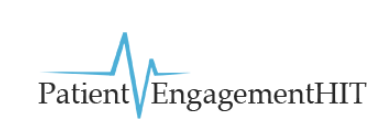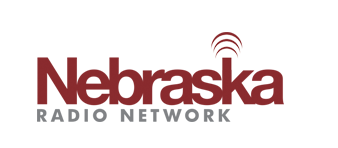Study reveals ratings relate to administrative matters

Almost two-thirds of online reviewers (63 percent) gave the nation’s 20 top hospitals, as ranked by U.S. News & World Report, mediocre to poor ratings on the review website Yelp.com, according to an analysis by Vanguard Communications & Healthcare Process Improvement.
“Our findings suggest [reviewers] focus their online comments more on nonmedical matters such as how many rings or pushed buttons it takes to get a live person on the phone and the availability of parking for a doctor’s appointment.” Ron Harman King, Vanguard Communications CEO
Read about the findings on Becker’s Hospital Review
Top 20 hospitals get poor marks on Yelp
U.S. News & World Report published its latest rankings in August based on the best clinical performances of hospitals nationwide. But on social media, patients tend to discuss the hospitals’ customer service far more often.

Of nearly 2,700 online reviews of the nation’s top 20 hospitals as ranked by the magazine, almost 2 out of 3 reviewers gave the facilities a mediocre to poor rating on the review website Yelp.com, according to an analysis by Vanguard Communications and Healthcare Process Improvement.
Read what these ratings mean at Healthcare Finance
Analysis finds hospitals that receive top marks in quality rankings earn mediocre reviews online
![]()
U.S. News & World Report bases it rankings on clinical performance, but patient reviews often focus more on customer service and other nonclinical concerns, Vanguard found. Eighty-four percent of Yelp reviews included in the analysis focused on service issues like billing problems, wait times and lack of follow-up instead of care quality concerns.
“People are generally pleased with their care providers…The harshest reviews more often than not complain about non-clinical services provided by administrative staffs surrounding the doctors.”
Ron Harman King, Vanguard Communications CEO
Read Fierce Healthcare’s analysis
Top hospitals get mediocre Yelp reviews for customer service
Some of the country’s biggest hospitals might be well known for their quality of care, but in the world of online reviews they are not so much known for customer service.
 A new study of 2,679 consumer reviews for U.S. News & World Report’s 20 top hospitals by Vanguard Communications & Healthcare Process Improvement in Denver finds that 63 percent of Yelp reviewers rate hospitals between one and three stars on a five-star scale.
A new study of 2,679 consumer reviews for U.S. News & World Report’s 20 top hospitals by Vanguard Communications & Healthcare Process Improvement in Denver finds that 63 percent of Yelp reviewers rate hospitals between one and three stars on a five-star scale.
“It’s a wakeup call … Customer service is easier for a hospital to fix than morbidity.”
Ron Harman King, Vanguard Communications CEO
Most top hospital online reviews are lukewarm or negative
 Organizations like the Leapfrog Group and sites like Yelp are seen as important online gauges that help patients find high quality care in this age of healthcare consumerism. However, online reviews, especially when anonymous, can leave health systems and hospitals wondering whether there are actually problems or that someone with an ax to grind or even a competitor are trying to hurt them.
Organizations like the Leapfrog Group and sites like Yelp are seen as important online gauges that help patients find high quality care in this age of healthcare consumerism. However, online reviews, especially when anonymous, can leave health systems and hospitals wondering whether there are actually problems or that someone with an ax to grind or even a competitor are trying to hurt them.
“The harshest reviews more often than not complain about non-clinical services provided by administrative staffs surrounding the doctors.”
Ron Harman King, Vanguard Communications CEO
Dive deeper with Healthcare DIVE
How do online provider reviews and quality care scores align?
 Online provider review scores do not always match up to traditional hospital quality rankings, likely because patients discuss customer service and patient satisfaction issues when leaving an online review, according to a report from Vanguard Communications & Healthcare Process Improvement.
Online provider review scores do not always match up to traditional hospital quality rankings, likely because patients discuss customer service and patient satisfaction issues when leaving an online review, according to a report from Vanguard Communications & Healthcare Process Improvement.
“We thought it would be interesting to learn more about what patients thought.” Ron Harman King, Vanguard Communications CEO
Patients tell all in online reviews of top hospital experiences
 Hospitals throughout the country are renowned for outstanding clinical outcomes and for their medical expertise, but a survey by Vanguard Communications & Healthcare Process Improvement shows there is another side: poor customer service often related to billing issues.
Hospitals throughout the country are renowned for outstanding clinical outcomes and for their medical expertise, but a survey by Vanguard Communications & Healthcare Process Improvement shows there is another side: poor customer service often related to billing issues.
“A lot of complaints were about something called up coding, where you are charged for higher level service than maybe you actually received. Also, a lot of times when you are in the hospital and you are groggy from sedation you are visited by people you don’t need. It turns out they are specialists who are charging you for a visit just for asking if you are doing you are okay. That is added to your bill.”
Ron Harman King, Vanguard Communications CEO